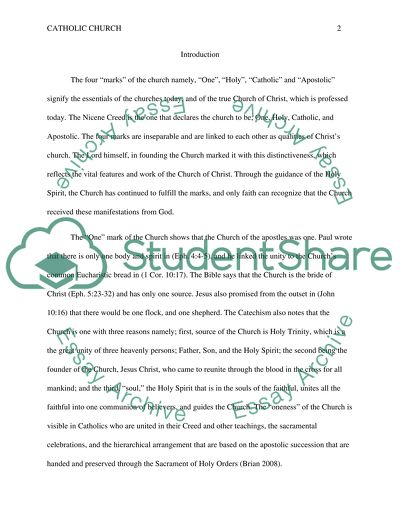Cite this document
(“Explain the Significance of the Four Marks of the Church - One, Holy, Essay”, n.d.)
Retrieved from https://studentshare.org/religion-and-theology/1439354-explain-the-significance-of-the-four-marks-of-the
Retrieved from https://studentshare.org/religion-and-theology/1439354-explain-the-significance-of-the-four-marks-of-the
(Explain the Significance of the Four Marks of the Church - One, Holy, Essay)
https://studentshare.org/religion-and-theology/1439354-explain-the-significance-of-the-four-marks-of-the.
https://studentshare.org/religion-and-theology/1439354-explain-the-significance-of-the-four-marks-of-the.
“Explain the Significance of the Four Marks of the Church - One, Holy, Essay”, n.d. https://studentshare.org/religion-and-theology/1439354-explain-the-significance-of-the-four-marks-of-the.


